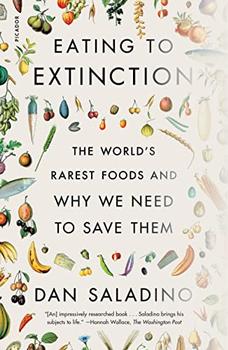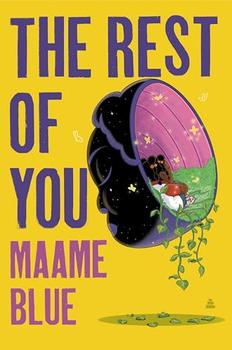Summary | Excerpt | Reviews | Beyond the Book | Readalikes | Genres & Themes | Author Bio

The World's Rarest Foods and Why We Need to Save Them
by Dan Saladino
The Hadza are ill-equipped to stop this encroachment; they have no possessions, no money and no leaders. They're skilled hunters but they avoid conflict. Instead of confronting tribes arriving on their land, they move deeper into the bush. But even here, farmers edge ever closer, expanding pasture and planting sorghum and corn, though there's barely enough water to irrigate crops. The Hadza have to contend with the effects of climate change too; they see its impact in the lack of water, disappearance of edible plants and decline in nectar and therefore quantity of honey they find. To survive, many rely on food from NGOs and missionaries. The last hunter-gatherers in Africa are being pinched from all sides.
* * *
A thirty-minute drive from Sigwazi's honey hunting, we reached a crossing point where different tribes gather to take water from a newly installed pump. Here, they also visit a small mudbrick hut lit by a single light bulb that hangs from the corrugated roof. Inside, from floor to ceiling, are shelves stacked with cans of sugary sodas and packets of biscuits. We were hours from the nearest city, an enormous wilderness lay between us and the nearest road, and yet some of the biggest food and drink brands in the world had made it this far.
In the place where our ancestors first evolved, sugar in plastic bottles is replacing the sweetness of the food that helped to make us human, honey. Scientists who monitor birdlife in the savannah describe melancholy scenes of birds swooping down, calling 'ach-ech-ech-ech' in the hope of a reply, as their interaction with humans becomes rarer. The conversation between the two species, thousands, possibly millions of years in the making, may soon fall silent.
Encircling the mudbrick hut were newly planted fields of corn. I felt I could have been watching a film in which hundreds of thousands of years of human history was being played on fast-forward, from wild to farmed and from foraged to processed, bottled and branded.
Excerpted from Eating to Extinction by Dan Saladino. Copyright © 2022 by Dan Saladino. Excerpted by permission of Farrar, Straus & Giroux. All rights reserved. No part of this excerpt may be reproduced or reprinted without permission in writing from the publisher.




Children are not the people of tomorrow, but people today.
Click Here to find out who said this, as well as discovering other famous literary quotes!
Your guide toexceptional books
BookBrowse seeks out and recommends the best in contemporary fiction and nonfiction—books that not only engage and entertain but also deepen our understanding of ourselves and the world around us.